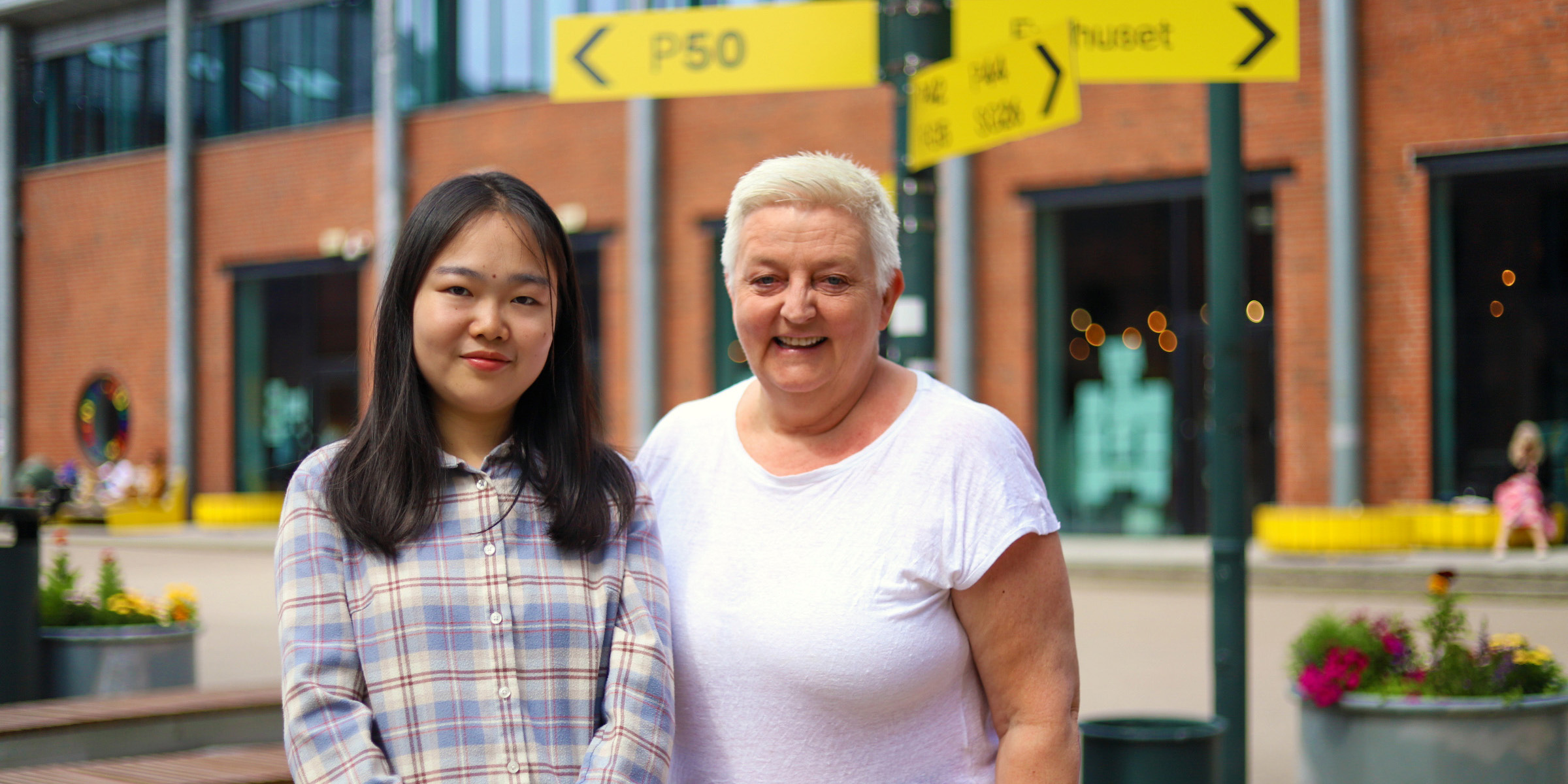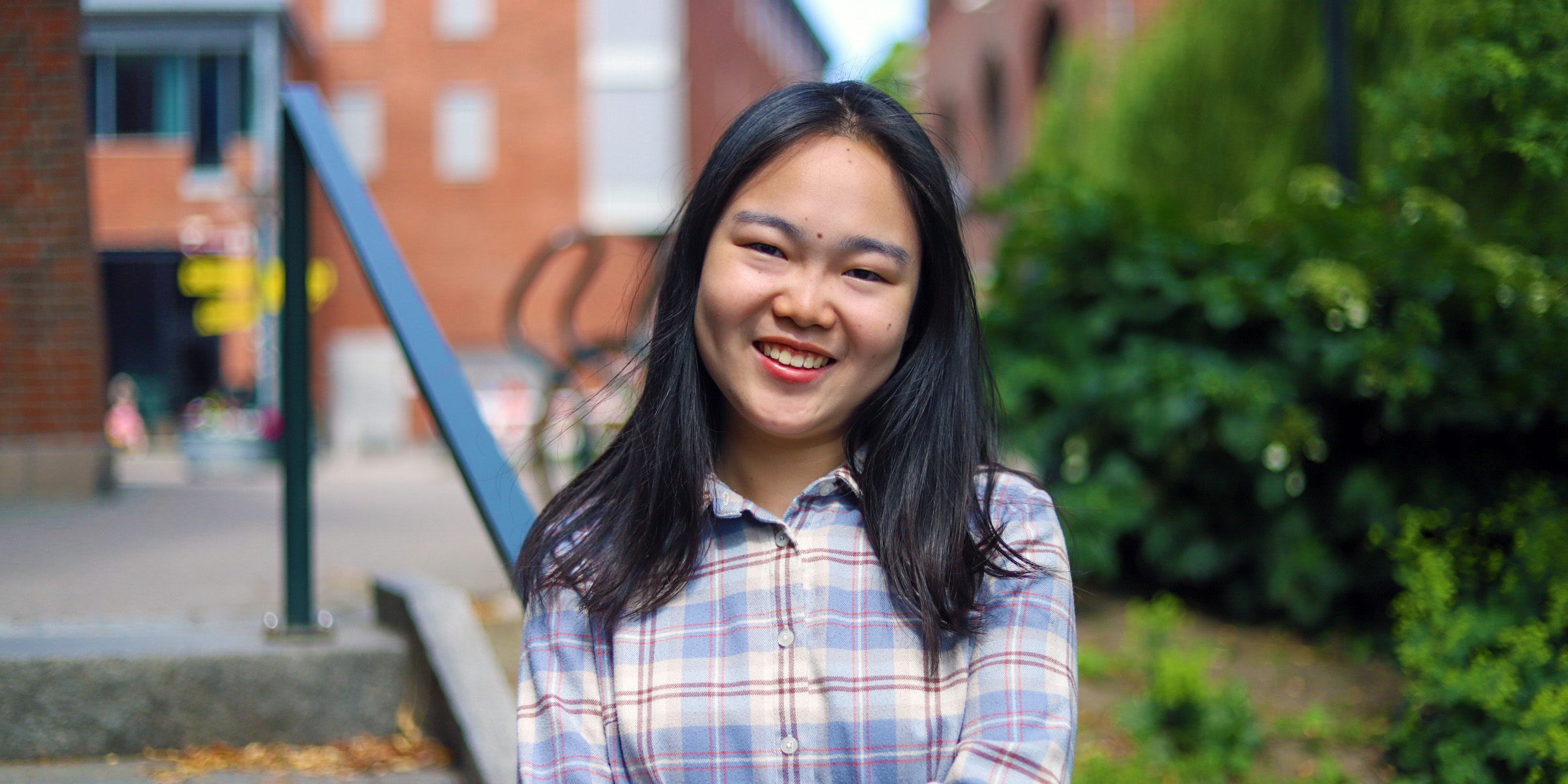Ma Sinan and Randi Wærdahl

New Exchange Agreement with Top University in China
In February 2024, OsloMet signed a student exchange agreement with Fudan University in Shanghai. This spring, the first student arrived in Oslo. Professor Randi Wærdahl hopes more colleagues and students will take advantage of the opportunity for exchange and research collaboration.
The agreement allows three students from each university to go on exchange every year for one semester – without paying tuition fees. It also opens the door for research collaboration and staff exchange.
“Fudan is a highly ranked university with outstanding researchers. I’ve really enjoyed working with colleagues there,” says Randi Wærdahl from the Department of Social Work, who has been collaborating with Fudan for several years already.
Relevant for many academic fields
The exchange agreement is with the School of Social Development and Public Policy at Fudan. The program is open to anyone at OsloMet with an interest in social issues.
“Since we work quite interdisciplinary here, many of our academic environments fit well into this program,” Randi explains.
There are also opportunities for exchange with other faculties at Fudan – through the Nordic Centre at Fudan University, a collaboration between Nordic universities, Fudan, and other Chinese institutions.
“This new exchange agreement stems from our membership in the Nordic Centre, which makes collaboration with Fudan safe and easy,” says Randi.
Academia must keep the dialogue going
She believes the current global situation makes international collaboration more important than ever.
“Both researchers and students should be encouraged to seek out exchange opportunities. When political conditions are unstable, academia must continue to collaborate – even with countries we don’t usually compare ourselves to. If academics stop talking to each other, then we should really start to worry.”
She emphasizes that exchange also brings the younger generation into this collaboration.
“They’re the ones who will carry the conversations. Through student exchange, we build new understanding and tolerance, and we shape new individuals – modern people in a global world.”
Collaborating beyond the English-speaking world
She encourages Norwegian researchers to be more curious about working with countries outside the Nordic region and the English-speaking world.
Randi herself has worked regularly with research colleagues in China since 2006.
“You go there to work with skilled academics – not necessarily because you’re especially interested in China, or the U.S., or Sweden for that matter. We should collaborate on issues like the environment, technology, and all kinds of human and societal questions that aren’t unique to any one country.”
OsloMet stood out
In January, Randi welcomed the first exchange student from Fudan, and this fall, two OsloMet students will head to Shanghai.
“I wanted to go abroad to experience something new, and OsloMet stood out because it offered hands-on research training,” says Ma Sinan, who takes her master’s degree in social policy at Fudan.
She took three courses, including Norwegian language for exchange students and Struggles for Justice and Equality in International Development, Education and Sustainabilities (oslomet.no) at the Faculty of Education and International Studies.
Impressed by the teaching.
“It’s a different kind of pedagogy than in China. At OsloMet there were just as many student led discussions as lectures, and all input, ideas, and thoughts were welcome. I think that’s a reflection of the Norwegian educational philosophy that values critical thinking, and it was a great experience.”

A valuable look at the norwegian welfare system
Her third course was research training. Sinan did her fieldwork at Prinsdal Senior Center, where she interviewed elderly people and their families about daily life and their experiences with the welfare system.
“It was important for her to get a qualitative approach to a research field she had previously studied through statistics,” says Randi.
“In China, we learn about the Nordic model, but here I got to see how it works in practice. I saw things that aren’t in the textbooks – like budget cuts and other challenges. It’s been very educational and thought provoking,” says Sinan.
Window to the world
She’s very happy with her semester at OsloMet and would recommend the exchange opportunity to other Chinese students.
She highlights the diverse environment, with students from all over the world.
“I felt our cultural diversity enriched our academic discussions in seminars. And our casual conversations often gave me new global perspectives. For me, this was a true window to the world.”
She is proud to have been the first exchange student on this program and hopes her experience can serve as a reference or reassurance for those who come next.
“I’m deeply grateful to OsloMet, especially to my supervisor Randi for the guidance and warmth I received throughout this journey. I truly look forward to seeing the bridge between our two universities continue to grow.”
Hard to get to know Norwegians
She says the university has been very welcoming and helpful by organizing various buddy group activities to help exchange students settle in and make friends.
Still, most of the people she got to know were other international students.
“It’s hard to get to know Norwegians. People are helpful and friendly, but forming close friendships is difficult. It’s partly cultural, but also because we don’t meet many Norwegians when we live in large student villages with mostly international students.”
Global citizens on campus
Randi believes OsloMet should do even more to create meeting places for Norwegian and international students.
She reminds us that by encouraging more interaction, we’re also fulfilling some of our international strategic goals for our own students.
“It’s called ‘internationalization at home’ – creating the conversations we really need in today’s world. We need to understand each other’s ways of being, practices, and thoughts to become good global citizens. We need more global citizens on campus.”


